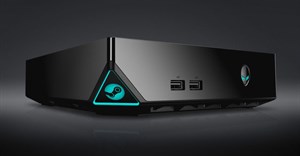The next-generation technologies shaping the manufacturing sector
According to IDC research, over half of both discrete and process manufacturers believe that it is highly likely a competitor could invest in digital transformation and gain a competitive advantage within the next five years or sooner – thus demonstrating the importance of new technologies in the sector.

However, given the fast pace of digital adoption, there is a clear need for a more reliable, but speedy method of work. In order to achieve this, manufacturers need to enter the next phase of digital transformation: digital transformation 2.0.
The path to 5G
The possible arrival of 5G will be instrumental for the manufacturing sector. The network’s increased speed and capacity will enable manufacturers to drive more functionality closer to the edge of the network and in areas of IoT. And stemming from this is the convergence of multiple technologies – of which 5G is one and acts as the catalyst – all of which can combine to revolutionise the manufacturing process even further.
IoT, AI, virtual and assisted reality, and mobile edge computing solutions, to name but a few examples, all provide a stronger platform for adoption by 5G’s impending arrival in the commercial sphere for 2019.
Smart manufacturing at the Edge
Mobile edge computing itself can play a major role in this era of unprecedented mobility, and especially so in industries such as manufacturing where a significant proportion of the workforce perform plant-based roles across a number of locations. It reduces operational strain and latency by processing the most critical data at the edge and close to its originating source – something which is already invaluable in this increasingly mobile age, and only set to become more so as data proliferation continues at an extraordinary rate.

It can also allow solutions to gather and distribute important information in remote areas where network connectivity is inconsistent or not cost effective. It’s no surprise then, that by 2022 IDC expects over 40 per cent of organisations' cloud deployments to include edge computing.
Boasting the ability to deliver high-performance computing from any location, mobile edge computing can therefore act as the gateway for IoT solutions to be used across the manufacturing sector. In a similar way that laptops and smartphones created a new environment for office workers, mobile edge computing will do the same for frontline manufacturing employees.
One such example is assisted reality smart glasses, which have already arrived in some cases to help field and plant-based workers better perform their day-to-day tasks and boost efficiency in production. For example, on the manufacturing plant floor, smart glasses can enable employees to complete tasks by accessing detailed specifications or instructions in real-time – ensuring greater manufacturing precision, reducing errors, and creating a more efficient overall process.
Security an ongoing priority
The opportunity provided by this new wave of technologies also heightens the challenge of maintaining the security of an ever-expanding network perimeter. Cyber-criminals are evolving their tactics to capitalise on any potential weak-spots across the entire IT infrastructure, with Sonic Wall research revealing a 275% annual increase in the number of ransomware variants last year.
Security therefore must remain a priority for IT leaders within the manufacturing industry as they seek to protect their data. Toshiba’s recent survey showed as much, with 72 per cent of manufacturers listing data security as a key investment priority for the next 12 months.
Manufacturers can protect their data through solutions like mobile edge computing, which enables data communication to be locally encrypted and translated to a communication protocol before being sent to the company’s network core via the cloud. Nevertheless, regardless of the security solutions in place, no IT infrastructure is ever completely protected unless staff are trained to understand the evolving threats within their working environment as well as the steps they can take to minimise risk.
Regardless, these technologies can combine to completely transform the manufacturing sector. So, while security must always be front-of-mind, it’s important to embrace new technologies in order to remain relevant in a highly competitive sector and pave the way for the new levels of organisational mobility and productivity that 5G, IoT and mobile edge computing can provide.










